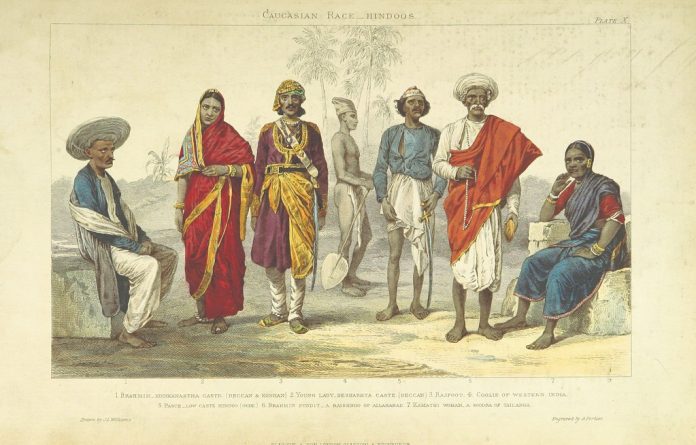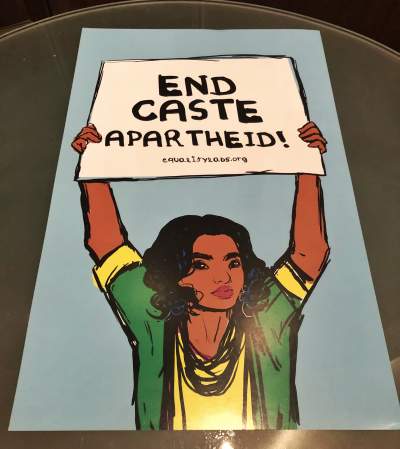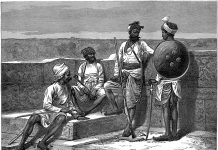Concept of Purity and pollution: The concept of purity and pollution are extremely complex and vary among different religious groups, castes, and regions. Purity and pollution are the basis of untouchability practice in India. After many years of struggle, many revolts and changes in the thought process had lead to the removal of this practice at some rate.
Generally, high status is associated with the concept of purity and low status is associated with pollution. Pollution is attached to birth, for both the mother and the infant’s close kin. Pollution is also attached to death, for the close relatives of the deceased, diseases such as smallpox, cholera, and illness. The pollution distance would vary from caste to caste and from place to place.
Famous sociologist Dipankar Gupta said that untouchability practice had emerged from the norms of Purity and Pollution.
Maintenance of purity by a person is associated with their intake of the drink and food. It is not just about the intake of food but it also depends on factors such as who has prepared or touched the food. By accepting beverages or cooked food prepared or served by the low castes, the person of higher caste would risk getting polluted and thereby lowers his own status. This aspect is of great importance especially with Hindus, and people who belong to other religious groups also hold these principles to varying degrees. The status of the person would remain intact if he accepts beverages or food from the people who belong to the same caste or of higher caste rank.
Purity=ritual purity, religious purity | Pollution=death, defilement, ritual pollution, etc
Pollution means: A touch of lower caste man would defile or pollute a man of the higher caste. Even if the shadows of a lower caste man fall on a higher caste man it was enough to pollute a higher caste man. The lower caste people suffered from many socio-religious disabilities. People who belong to impure castes were made to live on the outskirts of the city and they are not allowed to draw water from the public wells. In the earlier times, entrance into the temples and other places of religious importance were forbidden to them. Specific ideas of purity and pollution, and other practices dealing with impurity, are also found in other world religions, such as Christianity, Judaism, and Islam.
Certain kinds of purity are inborn or inherent. For example, a person of a high rank i.e. the Brahmin/priestly caste is born with more inherent purity than the person of a low-ranking caste. Generally, purity is associated with ritual cleanliness. Ex: eating only appropriate foods for certain caste, i.e. Brahmins are supposed to eat only vegetarian food, refraining from involvement with ritually impure things, daily bath, avoiding physical contact with people who belong to lower rank, dressing with appropriate clothes of approved material. The people who belong to high ritual status avoid contact with items of death, body wastes, and excretions, which are typically polluting and threatening their ritual purity.
Caste-based violence
The caste system in India has been exploited against the Hindus, by the British, Christian Missionaries, Secular historians, Communists, etc. The political leaders of independent India had decided that India will be a socialist, democratic, and secular country. As per this policy, there is a separation between religion and state. Discrimination or practicing untouchability against a person, based on his caste is legally forbidden in India. Besides this law, the government of India allows positive discrimination of the depressed classes of India. In spite of strict laws instances of caste-based violence are evident. Such violence is occurring in India in various forms every now and then. People of lower caste still continue to face discrimination, exclusion, poverty, and there are also acts of communal violence. Though enough policies and laws are made for their protection still a lot of awareness and proper implementation is required to derive fruitful results.
Pollution, Women, and Religion
A Hindu woman during her menstrual period is considered to be polluted and she must refrain from worshipping, cooking, or should avoid physical contact with older and younger people. During this period the women in South India would spend time sitting outside the house or resting in an isolated shed or room.
In Muslims during the period of time, Muslim women should not touch the holy Quran. Once the period ends, purity is restored in a woman after a complete bath.
Role of Caste Panchayat
Each caste had its own panchayat where the grievances of its caste members were heard. These caste panchayats are headed generally by the elder members of that caste and they had the power to excommunicate a member from his or her caste if they did not accept caste restrictions. Caste restrictions exist in commensality, or inter-dining, marriage, and general social intercourse, as well.
Caste system in modern India
In urban areas of India, people are less strict about the caste system than the rural areas. Urbanization has destroyed the feeling of the caste system as many people from various castes live together in the cities. Cities in India have a unique character where the ghettoing of the backward classes is not possible and this feature would help in bringing together a number of different caste people living together. In the social life of cities where they’re a lot of recreational centers, it is not possible to observe any taboo. Urbanization had reduced the competition between different castes due to their widely distributed character and also by giving preference to their economic priorities. Because of the growth in urbanization, the caste associations have extended their area of concern beyond the local politics into national politics.
Conclusion:
Though caste norms in India may have once had a rationale, but these norms are outlived today. The caste system is not stagnant and is undergoing changes under the impact of modernization. The caste system in India should undergo major reforms in the social arena so that unjustified discrimination and abuse is eliminated.










I was looking for, and I am glad to came here! Thanks for sharing the such information with us.
Welcome
I like this weblog its a master peace ! Glad I discovered this on google .
Thank you
An impressive share, I just given this onto a colleague who was doing a little analysis on this. And he in fact bought me breakfast because I found it for him.. smile. So let me reword that: Thnx for the treat! But yeah Thnkx for spending the time to discuss this, I feel strongly about it and love reading more on this topic. If possible, as you become expertise, would you mind updating your blog with more details? It is highly helpful for me. Big thumb up for this blog post!
It is in reality a nice and helpful piece of information. I am glad that you simply shared this useful info with us. Please keep us informed like this. Thanks for sharing.
Thank you
I’ve learn several good stuff here. Definitely price bookmarking for revisiting. I surprise how a lot attempt you set to make the sort of excellent informative website.
Thank you so much
Fantastic post but I was wondering if you could write a litte more on this subject? I’d be very grateful if you could elaborate a little bit further. Bless you!
Thank you
Do you mind if I quote a few of your posts as long as I provide credit and sources back to your webpage? My blog site is in the very same area of interest as yours and my visitors would truly benefit from some of the information you provide here. Please let me know if this okay with you. Many thanks!
It’s ok you can use the points and please don’t forget to give the credits.
Thanks for sharing such a fastidious opinion, paragraph is nice, thats why
i have read it completely
my web site … tracfone coupon
I am glad to be a visitor of this everlasting blog! , appreciate it for this rare information! .
Thank you very much